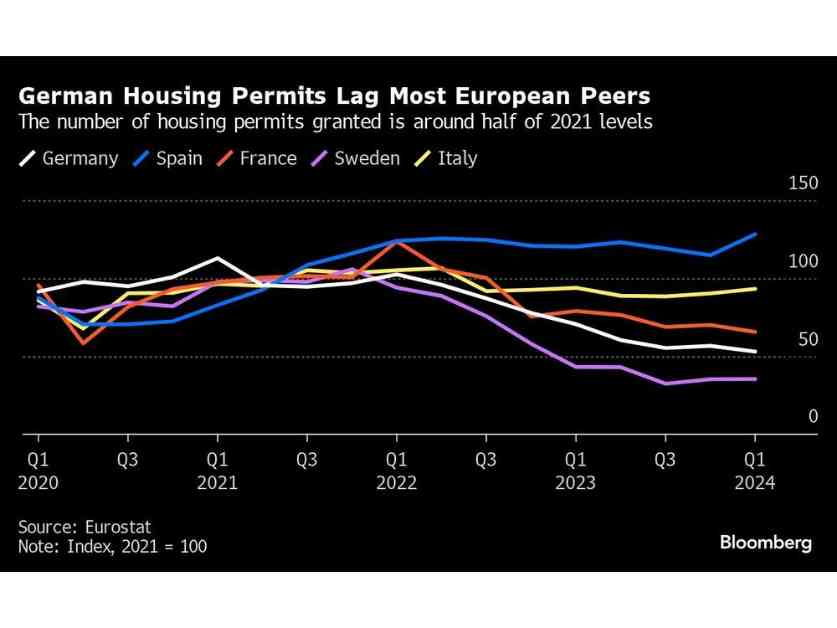Germany’s Housing Crisis Exacerbated by Abandoned Construction Sites
The housing crisis in Germany has taken a troubling turn with the rise of what are being called “zombie construction sites.” These abandoned projects have left many potential homeowners in limbo, as developers go bankrupt and construction comes to a halt. One such case is that of Valeriy Shevchenko, a software engineer who was set to move into a new apartment in Berlin’s Prenzlauer Berg district before the project was derailed by the developer’s insolvency.
The Impact of Zombie Construction Sites on Housing
These unfinished construction sites are not just a visual blight on the landscape, but they also have significant financial and emotional consequences for those involved. Families like the Shevchenkos find themselves stuck in rental properties, paying both rent and interest on loans for down payments that are now tied up in insolvency proceedings. The lack of progress on these projects not only affects individual homeowners but also has wider implications for the housing market in Germany.
Challenges Faced by Homebuyers
The situation is dire for many homebuyers who have invested their savings in these projects, only to be left waiting for a resolution that may never come. The insolvency process is ill-equipped to handle the complexities of restructuring building projects, leaving families like the Shevchenkos in a state of uncertainty. Without clear solutions or support from developers and policymakers, these individuals are left with few options but to wait and hope for a resolution.
Economic Ramifications of Abandoned Construction Sites
The impact of these zombie construction sites goes beyond the personal struggles of individual homebuyers. The collapse of over 1,000 companies involved in real estate activities since 2022 has had far-reaching consequences for the German economy. Surging construction costs and interest rate hikes have exacerbated the situation, leading to a decline in construction activity and a slowdown in economic growth.
Government Response and Future Outlook
Despite promises from Chancellor Olaf Scholz’s coalition to address the housing crisis by building more homes, the reality on the ground tells a different story. With construction activity slowing down and investor confidence waning, the prospects for a quick recovery in the housing market look bleak. The government’s failure to deliver on its housing targets has left many wondering how long the crisis will persist and what steps can be taken to address the root causes of the problem.
Opportunities Amidst Challenges
While the situation may seem dire, there are opportunities for investors and developers to step in and revitalize these abandoned projects. Companies like Arrow Global have already taken advantage of the situation by acquiring distressed assets and committing to finishing construction on stalled sites. This not only provides a lifeline for struggling projects but also injects much-needed capital back into the housing market.
Looking Ahead
As Germany grapples with the fallout from zombie construction sites and the broader housing crisis, it is clear that bold and innovative solutions are needed to turn the tide. From addressing regulatory hurdles to incentivizing new construction, there are various avenues that policymakers and industry stakeholders can explore to ensure a more sustainable and resilient housing market for the future. Only time will tell if these efforts will be enough to bring relief to families like the Shevchenkos and to safeguard the stability of the German housing sector.






















